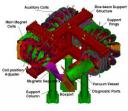This is going to be a piece some folks are going to find offensive. I’m going to attack the idea of universal multicultural tolerance. And note the word ‘universal’ because I am decidedly not against all cultures other than my own. And, in fact, there are aspects of my own culture that I think the planet would be much better off without.
I am sorry that these ideas may offend some because I don’t like offending people. But, these are things that need to be said. I am most definitely open to alternative view points and I welcome your comments and I will respond to them.
I believe that when people immigrate to a new country, they should make a conscious decision to embrace the culture of that country before they go. If they want the benefits of living in the new country, then they should accept its culture as well. If they don’t like its culture, then they should stay home.
Immigration should be encouraged but it should also be controlled. A country’s culture can absorb a certain number of new members with harm or confusion but there is an upper limit and the government should be sensitive to not cross that limit. If too many people come in at once, the country’s self-identity can become confused and the result is that it can become like a person with multiple personalities.
And when large numbers of people are allowed come in without having made a conscious decision to embrace the culture of their new home, the danger of the nation developing multiple personality disorder is magnified exponentially.
In my opinion, Britain, France and Germany have already crossed this fatal line and may never recover. They have let in too many people from other cultures who have brought their native cultures along lock, stock and barrel and setup cultural enclaves within their new nations. Australia is beginning now to grapple with this problem.
Here’s a quote from an editorial ➡ in an Australian newspaper that illustrates my point:
Many Britons are concerned that multicultural policies that have discouraged assimilation have divided their society and created what one commentator called a “voluntary apartheid”. In the age of terrorism, this is a worrisome trend, especially considering that a recent survey of British Muslims suggested 100,000 of them felt the 7/7 attacks were justified and that one in five felt little or no loyalty to Britain.
And:
While tolerance is certainly a positive virtue that should be strived for, it cannot be a cultural suicide pact. A culture that is tolerant of those who are intolerant of its freedoms is ripe for destruction, and bit by bit will see all it values eroded. And radical Islam knows this. Just as an Australian wouldn’t go to Saudi Arabia to wear a bikini on the beach and drink beer in the corner pub, those who see the proper role of women as subservient, anonymous and under cover should not expect a postmodern secular democracy such as Britain or Australia to accommodate these beliefs.
It may be too late for Britain and much of Western Europe to maintain coherent cultures but Australian politicians have been speaking up of late:
Treasurer Peter Costello, seen as heir apparent to [Australian Prime Minister] Howard, hinted that some radical clerics could be asked to leave the country if they did not accept that Australia was a secular state, and its laws were made by parliament. “If those are not your values, if you want a country which has Sharia law or a theocratic state, then Australia is not for you“, he said on National Television.
“I’d be saying to clerics who are teaching that there are two laws governing people in Australia; one the Australian law and another Islamic law, that is false. If you can’t agree with parliamentary law, independent courts, democracy, and would prefer Sharia law and have the opportunity to go to another country, which practices it, perhaps, then, that’s a better option“, Costello said.
If you examine cultural tolerance in many places in the Islamic world, like Saudi Arabia, it is nearly non-existant. They believe their culture is the right one and they are not going to let other cultural practices corrupt theirs. This is their country and they have the right to preserve their culture. Why should they come to our cultures and expect to practice theirs within ours? If cultures are tolerant of each other, then they can and should mix but intolerant cultures should not expect to get the same treatment.

